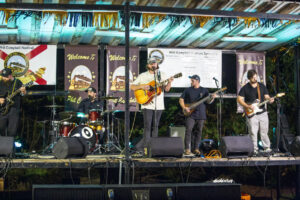Comeback story just never gets too old
By By Will Bardwell / staff writer
July 8, 2004
After six years, you'd think I would be used to Lance Armstrong dominating the Tour de France.
But I'm not. This story never gets old. Every year, I'm completely dumbfounded for three weeks as Armstrong rips a hole through the world's greatest test of endurance.
I'm not a cycling fan by any stretch of the imagination. I've never sat down and watched the Tour de France on television for more than a half hour or so. Usually, I keep up simply by watching highlights and reading about it the next day.
Still, I see enough to realize that Armstrong is the greatest athlete of my lifetime. He may be the greatest athlete of anybody's lifetime.
When's the last time you tried riding a bike? Speaking personally, not lately. That's because it's hard. Half an hour on a stationary bike at the gym is enough to make me cry. If I can tally a couple of miles, I'm happy.
So imagine, if you can, getting on a bike and riding 2,100 miles across France. All the while, you're surrounded by hundreds of cyclists flying as fast as cars, ready to run you over if you fall.
And oh yeah, there's a little range of mountains called the Alps that you have to go through. By the way, if you fall off your bike in the Alps, you'll probably die. Have a nice day.
I'd be lucky to finish such a course in a year. And these guys do it in three weeks.
Amazingly, Armstrong has won this torturous gauntlet five years in a row. If he wins this year and after claiming the race lead on Wednesday, he's well on his way he will have more Tour de France titles than anyone else.
More amazing than that, though, is the fact that Armstrong almost didn't live long enough to win his first title.
In 1996, the then-25-year-old Armstrong was one of cycling's fastest rising stars. He'd won several events, finished first in a handful of Tour de France stages, and even competed in the Atlanta Olympics four years earlier.
But something weird was happening to him. It hurt to sit on his bike. He ignored it at first, as most men would. But pretty soon, the pain was excruciating, and he had to see a doctor.
Cancer.
It had started off simply as testicular cancer no laughing matter, but usually treatable if it's caught early.
But Armstrong's tumor hadn't been caught early. It was fully developed. And it had spread all the way up his body. His abdomen, lungs and brain were all infected.
Armstrong was given less than a 50 percent chance of survival.
Surgery took out his cancerous testicle and lesions on his brain. Four rounds of chemotherapy fought back the cancer in his torso.
Luck and hard work took care of the rest.
Since then, Armstrong has left nothing to luck. After the cancer went into remission, just racing competitively would've been a heck of an accomplishment for Armstrong. He's done a lot better than that, though. Barring a setback, he's two weeks away from being the first person cancer survivor or not to win the world's toughest sporting event six years in a row.
Through determination alone, Armstrong has traveled from the brink of death to the brink of history.
Of course, I'm sure Armstrong would rather it hadn't worked out this way. He missed all of 1997 on the advice of his doctors, which cost him his contract with his French racing team, not to mention a year of competition. If he'd gone to a doctor when symptoms popped up, he likely would have missed far less time.
That's not the way it happened, though. And if he'd allowed it, Armstrong's predicament could've been a death sentence if not for him, then for his career.
The only thing he didn't allow, though, was for a handful of tumors to determine his destiny.
And that's a lesson from which everyone can learn, cycling fans or not.










